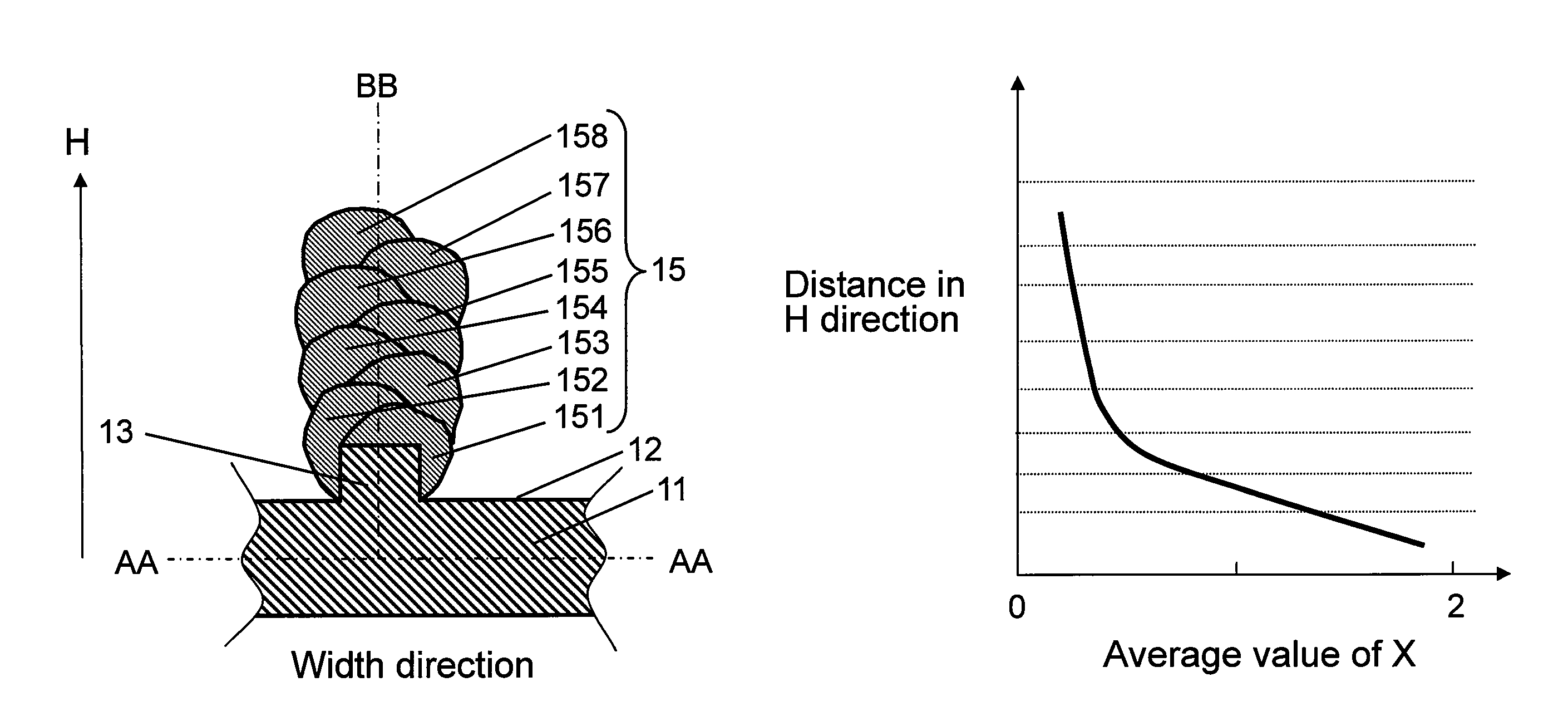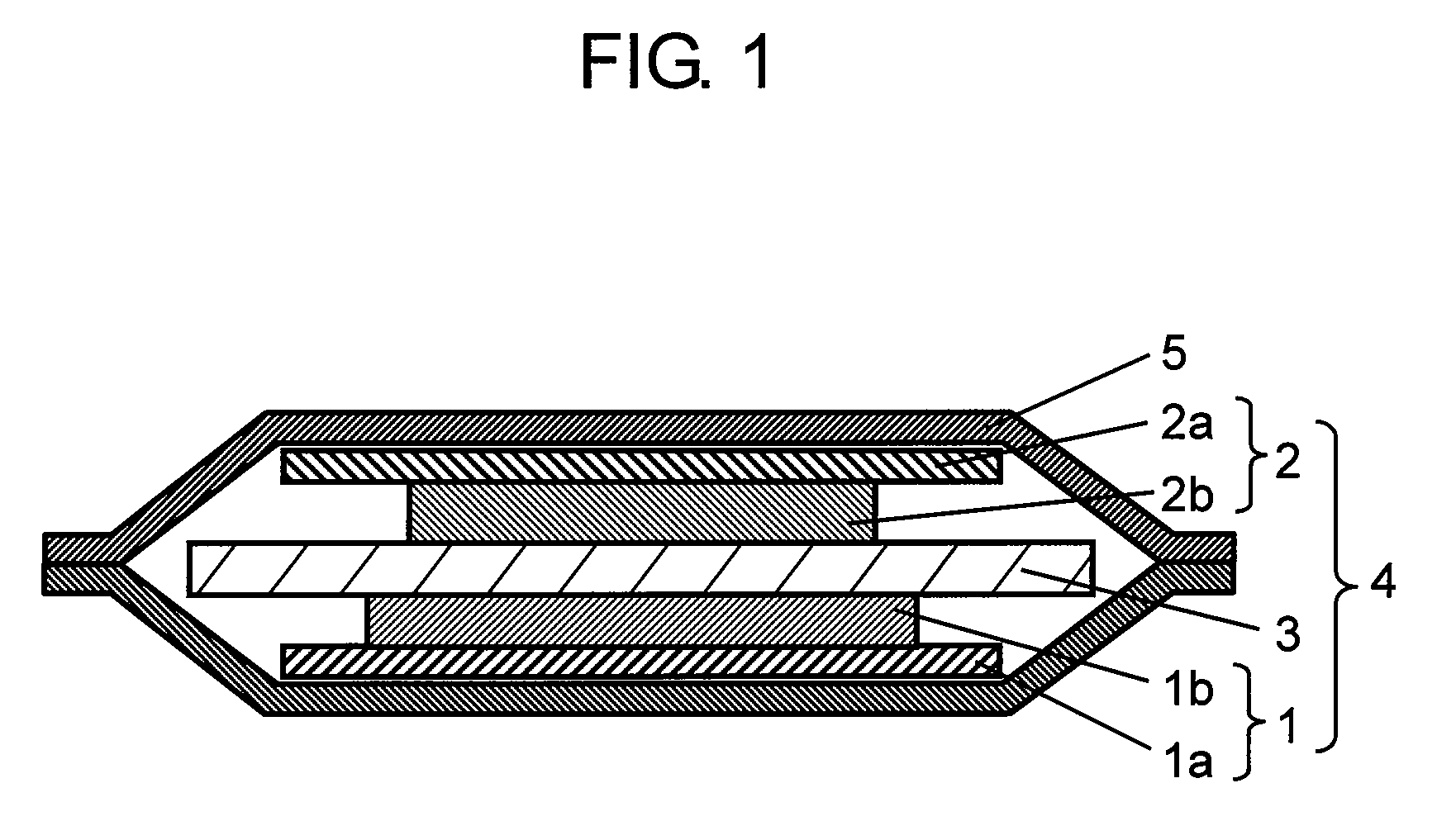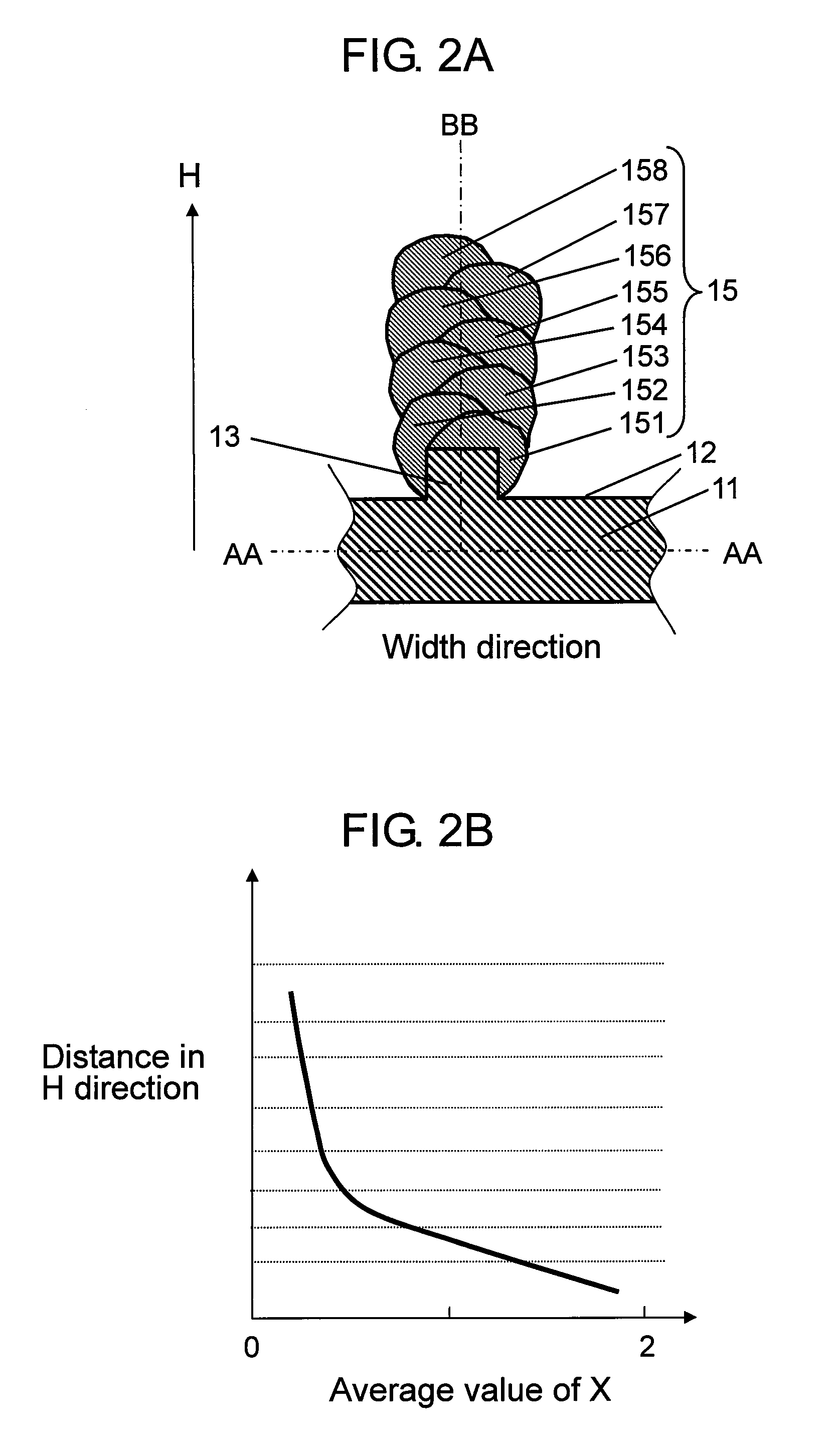Electrode for electrochemical element, its manufacturing method, and electrochemical element using the same
a technology of electrochemical elements and electrochemical elements, applied in the field of electrochemical elements, can solve the problems of inability to realize the enhancement of battery capacity, inability to substantially improve the cycle characteristics, and the active material layer may be torn or peeled, so as to achieve high capacity, improve the charging and discharging cycle characteristics, and high safety
- Summary
- Abstract
- Description
- Claims
- Application Information
AI Technical Summary
Benefits of technology
Problems solved by technology
Method used
Image
Examples
first exemplary embodiment
[0039]FIG. 1 is a sectional view of a non-aqueous electrolyte secondary battery in a first exemplary embodiment of the present invention.
[0040]As shown in FIG. 1, a laminated type non-aqueous electrolyte secondary battery (or merely battery) includes electrode group 4 having negative electrode 1 specifically described below, positive electrode 2 opposite to negative electrode 1 for reducing lithium ions in discharging process, and porous separator 3 interposed between them for preventing direct contact of negative electrode 1 and positive electrode 2. Electrode group 4 and an electrolyte (not shown) having lithium ion conductivity are accommodated in outer case 5. The electrolyte having lithium ion conductivity is impregnated in separator 3. One end of positive electrode lead (not shown) and negative electrode lead (not shown) is connected respectively to positive electrode current collector 2a and negative electrode current collector 1a, and other end is drawn out to outside of out...
second exemplary embodiment
[0086]In a second exemplary embodiment of the present invention, a negative electrode is described by referring to FIG. 6A and FIG. 6B.
[0087]FIG. 6A is a partial sectional schematic diagram of structure of a negative electrode25 in the second exemplary embodiment of the present invention, and FIG. 6B is a schematic diagram explaining changes of a value of x in H direction of columnar bodies 25a in the exemplary embodiment. In FIG. 6B, changes of the values of x on line BB in FIG. 6A are shown.
[0088]Second exemplary embodiment differs from negative electrode 1 in the first exemplary embodiment in that one columnar body 25a is provided in perpendicular direction on convex portion 13 of current collector 11. Other elements of the battery are same, and same elements are identified with same reference numerals in the following explanation.
[0089]That is, as shown in FIG. 6A, concave portion 12 and convex portion 13 are provided at least on upper surface of current collector 11 made of con...
third exemplary embodiment
[0103]A negative electrode in a third exemplary embodiment of the present invention is described below by referring to FIG. 8A and FIG. 8B.
[0104]FIG. 8A is a partial sectional schematic diagram of structure of negative electrode 35 in the third exemplary embodiment of the present invention, and FIG. 8B is a schematic diagram explaining changes of a value of x in H direction of columnar body 35a in the exemplary embodiment. In FIG. 8B, changes of the value of x on line A-A in FIG. 8A are shown.
[0105]Third exemplary embodiment is different from negative electrode 25 of the second exemplary embodiment in that one columnar body 35a is formed obliquely on convex portion 13 of current collector 11. Basically, the columnar body portion of first stage in the first exemplary embodiment is formed largely as one columnar body. The other structure of the battery is same, and same components are identified with same reference numerals in the following explanation. The manufacturing apparatus is ...
PUM
| Property | Measurement | Unit |
|---|---|---|
| width | aaaaa | aaaaa |
| width | aaaaa | aaaaa |
| height | aaaaa | aaaaa |
Abstract
Description
Claims
Application Information
 Login to View More
Login to View More - R&D
- Intellectual Property
- Life Sciences
- Materials
- Tech Scout
- Unparalleled Data Quality
- Higher Quality Content
- 60% Fewer Hallucinations
Browse by: Latest US Patents, China's latest patents, Technical Efficacy Thesaurus, Application Domain, Technology Topic, Popular Technical Reports.
© 2025 PatSnap. All rights reserved.Legal|Privacy policy|Modern Slavery Act Transparency Statement|Sitemap|About US| Contact US: help@patsnap.com



